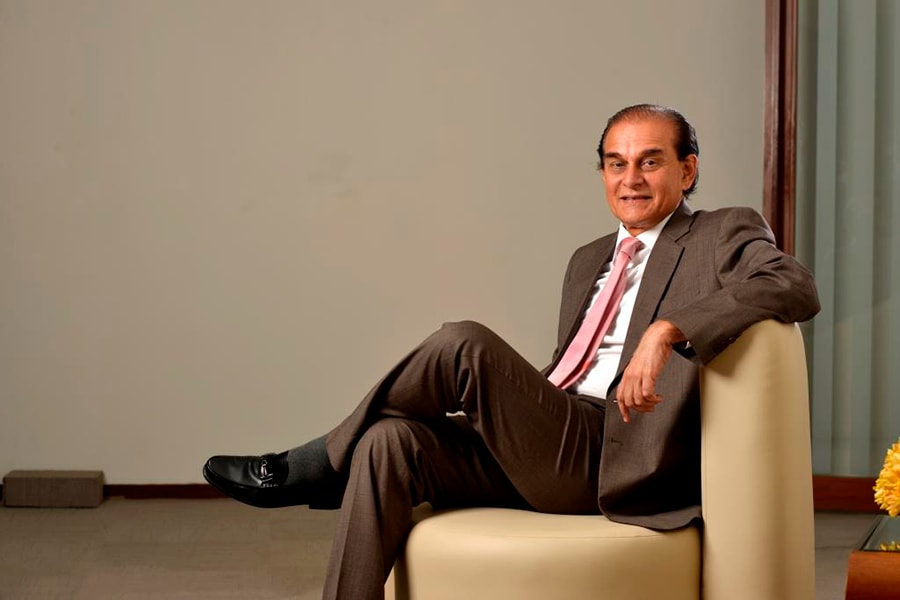
Entrepreneurs should take change as an opportunity rather than threat: Harsh Mariwala
Marico chairman talks about the importance of a peer-to-peer network for entrepreneurs and the journey that led to the formation of Ascent Foundation

Q. What inspired you to set up the Ascent Foundation?
It goes back to when I was thinking of ways to give back to the society, not only financially, but also with some personal involvement. Since I wanted to be involved actively, it was important to me that it was something that I was passionate about. After a lot of soul searching, I decided to work with entrepreneurs directly. An early prototype was that I would work with women entrepreneurs on startups. But the scale of that would have been limited, and I wanted do work that would have a larger impact. We decided to change the focus to both men and women entrepreneurs. But startups need a different kind of intervention and personal hand holding, since its challenges are very different, and there was a limit to which I would be able to do that.
Keeping this in mind, in August 2012, we started the Ascent initiative, which is based on peer-to-peer learning platforms. It basically helps entrepreneurs scale up and learn from each other. Over the last six years, we have evolved and we have self-corrected our approach and tried different things. Now it’s far more robust in terms of what we are offering to entrepreneurs.
Q. What factors do you consider while picking entrepreneurs for Ascent?
There is a rigorous selection process that every applicant goes through. There are three main factors that we look at – Turnover, the company should atleast be breaking even; the entrepreneurs’ ambition, because we want entrepreneurs who want to grow, and lastly, their intent of learning from others and in contributing to the learning of other entrepreneurs. Once we have onboarded them, these entrepreneurs are distributed into various trust groups with an average size of about 10. They meet on a monthly basis to discuss internal issues.
Q. What is it that entrepreneurs learn from peer-to-peer networks that they would miss out on in one-on-one mentoring?
Openly discussing challenges they are facing at an individual level, be it the relationship within partners, issues at the family level [in a family-business] or what products should they launch. A trust group is a sounding/advisory board for them, which helps them identify the entrepreneur’s blind spots. There are 10 other entrepreneurs from non-competing businesses, with no vested interest in you or your company or product, looking at your business in 10 different ways, critiquing them. These trust groups are put together by our team very carefully. We ensure there is diversity in each group, to ensure there is an open discussion without the fear or threat of any competitors.
Q. How has entrepreneurship in India evolved in the last few years?
I think some of the biggest problems that all entrepreneurs face, include funding; the other is people [having the right team] and using the right leadership style, and the third are their partners/promoters. Depending on the kind of business an entrepreneur is operating in, every entrepreneur is bound to face change. These are changes that are brought about thanks to disruptions across business areas like technology or consumer preferences. It’s important for entrepreneurs to realise that change is constant, and dealing with change proactively should be viewed as an opportunity rather than as a threat.
Q. What are some of the interesting new programs currently underway at Ascent?
We are currently working on the Marico Outreach program. As a company, at Marico we decided we wanted to build a lot of capabilities within the employees here, which may not necessarily come from training programmes. We sent an employee from here [Marico] to an Ascent-member SME [small and medium enterprise] to work for two months. Often, in a bigger organisation there are a lot of limitations, especially innovation-wise. Working at a company with a smaller size and scale and organizational structure is a different kind of on-the-job training [for the employee].
X















